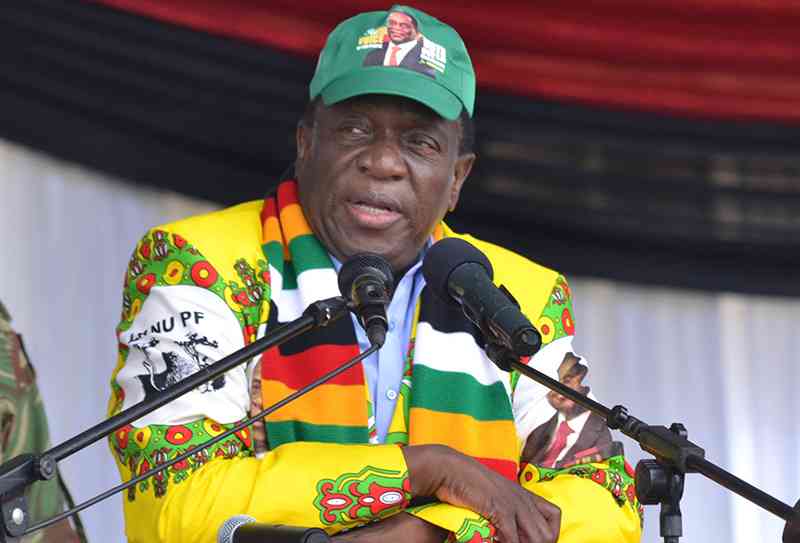
BY NOKUTHABA DLAMINI
The ban on the use of foreign currency in local transactions and the rapid collapse of the re-introduced Zimbabwe dollar has left independent power producers (IPPs) facing viability problems and is stifling investment in alternative sources of energy, it has emerged.
IPPs that have set up thriving energy projects across the country made the revelations at the inaugural International Renewable Energy Conference and Expo organised by The Standard in Victoria Falls last week.
Nyangani Renewable Energy, Penhalonga Energy, Solar Energy Projects and Centragrid said the currency restrictions had left them unable to service foreign loans and finance new investments.
Previously the firms had power purchase agreements (PPAs) with Zesa where tariffs were denominated in United States dollars, but after the introduction of the Zimbabwe dollar in June last year, the companies are now being paid in local currency based on the interbank rate for the electricity they feed into the national grid.
The interbank market, however, has largely been ineffective with only a few companies, mainly in the fuel sector, accessing foreign currency.
Ian M’Kersie, the Nyangani Renewable Energy MD, said they had approached the Reserve Bank of Zimbabwe (RBZ) seeking its intervention but they were turned down.
“The business has to turn this income (in local currency) around to service foreign loan commitments and returns to investors, but IPPs are unable to do this on the interbank market due to the scarcity of forex,” M’Kersie told Standardbusiness.
- Chamisa under fire over US$120K donation
- Mavhunga puts DeMbare into Chibuku quarterfinals
- Pension funds bet on Cabora Bassa oilfields
- Councils defy govt fire tender directive
Keep Reading
“We have approached the RBZ to request they make a special allocation of forex for IPPS to our bank to allow us to purchase this for loan repayments and investor returns, but they have written to us to say they will not do this and we should obtain this forex from our bank.”
Nyangani Renewable Energy is one of the first IPP companies to set up in Zimbabwe and as of last year, the firm was selling 32 megawatts (MW) of electricity to the Zimbabwe Electricity Transmission and Distribution Company (ZETDC).
The electricity is generated from run-of-river mini hydroelectric power stations in Honde Vallley and Nyanga as well as a solar power plant in Mutoko.
M’Kersie said they were considering setting up more hydro and solar projects locally and in the region. In Malawi the company has a 10MW hydro scheme.
Penhalonga Energy CEO Oloff Smyth said PPA negotiations with ZETDC had been deadlocked for the past five months following the currency changes.
“Therefore, without an exemption allowing PPAs to be indexed in US dollars, they will not be bankable and hence I cannot see how any new IPP projects (can set up) energy in Zimbabwe,” Oloff said.
He said energy was a US-dollar-based commodity, hence there was need for that to be reflected in the Zesa tariffs.
Victor Utedzi, whose Centragrid started feeding 2.5MW of electricity into the national grid from its solar farm in Nyabira last year, said the ban on the use of foreign currency in local transactions should have sparred IPPs.
“Ideally the ban shouldn’t have affected local private power producers,” Utedzi said.
“The government had intended that businesses with foreign currency obligations would approach the interbank market.
“However, just with any policy intervention, there are usually some unintended consequences. The interbank market has not operated nearly as intended.”
He said lack of foreign currency might have long term effects on local IPPs “In the immediate short term, foreign currency shortage may not affect current operations, particularly in the renewable energy sector,” Utedzi added.
“Most of our power plants are relatively new and do not have a huge backlog of replacements.
“Naturally if uncorrected, operators would fail to access spares, compromising their plant long-term viability and creditors may be forced to call back the loans, which would cripple businesses.”
M’Kersie said the introduction of Statutory 142 of 2019 that prohibits the use of foreigh currency in local transactions had also stalled the development of IPP projects.
“In respect to PPAs for projects still being developed such as Tsanga A, ZETDC requires an exemption to be granted to them by the Ministry of Finance and Economic Planning, that permits them to sign a PPA that has a Zimbabwe Energy Regulatory Authority approved tariff, which is denominated in US dollars, but payable in local currency,” he added. “Following the introduction of the statutory instrument, this exemption remains outstanding and, therefore, since February 2019, PPAs have not been completed.
“PPAs are the security to any project finance and, therefore, no further IPP progress has been possible.”
M’Kersie said the ever widening gap between the interbank rate and the parallel market rate meant that the IPPs’ income stream “could be viewed as being seriously discounted, which destroys operating project viability”.
“This is the perspective that prospective IPP investors see and, therefore, are discouraged from investing.”
Utedzi said the government should consider providing specific financial guarantees, which investors would call upon “only to the extent that the national utility is unable to make payments”.
He said the government must also ensure that IPPs are sustainable instead of focusing more on importing electricity from neighbouring countries.
“For every one American dollar that we allocate towards imports of electricity from neighbouring countries, a temporary reprieve, we are strengthening the neighbours’ ability to continue to expand their generation capacity while we delay the attainment of our own goals to build cheap, reliable and clean electricity infrastructure that would fire our country into middle income status in the next few years,” he added.
ZETDC system development manager Ikhupuleng Dube, however, said the power utility was reviewing PPAs with the IPPs to ensure that investors reaped benefits from their investments in the country’s energy sector.
In May last year, Zimbabwe introduced 18-hour daily power cuts after a consecutive drought saw water levels at Kariba Dam dropping drastically.
Kariba is Zimbabwe’s main source of hydropower.
The reduced power generation has forced Zimbabwe to import electricity from Mozambique and South Africa, but Zesa is struggling to raise foreign currency to pay its suppliers.










